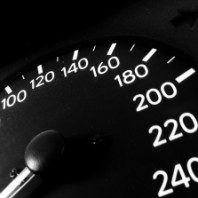What is Caching and Why Does it Matter?
Caching is a facility where data is stored so that subsequent requests can be served faster.
WordPress pages use PHP (a web programming language). Every time a page from your WordPress site is viewed by a user, there are all sorts of overheads from having all the PHP code generate the HTML and database calls. The more users you have hitting your site, the slower the page responses will be. A cache keeps a static HTML version of the pages, so that if a user requests a page that has already been viewed, they get the cached version and the website doesn’t need to suffer all overheads of generating the page.
In terms of SEO, Google announced that that page speed will be a factor in search rankings. The following quote is taken from the Google Webmaster Central Blog:
“Like us, our users place a lot of value in speed — that’s why we’ve decided to take site speed into account in our search rankings.“
I’ve emphasised the last part in bold as I think it is a very important point.
While Google only implemented this change in April 2010, and they state that speed doesn’t carry as much weight as the relevance of a page, you can be assured that page speed will become a much more important factor as time goes on.
Watch the video below to see what Google have to say about page speed.
WordPress Cache Plugins
There are quite a few WordPress cache plugins. Some are very specific like “del.icio.us cached++” which caches del.icio.us bookmarks from its RSS feed, but most of the caching plugins are designed to make your WordPress site serve pages faster.
Probably the two most popular caching plugins are WP-Cache and WP Super Cache. I’ve been using WP Super Cache on all my WordPress sites, but I built a new site today and decided to revisit the plugins. One cache plugin that caught my eye was Quick Cache. While I have no specific complaints with WP Super Cache, I decided to give Quick Cache a go.
Main Differences Between Quick Cache & WP Super Cache
The following summary comes from the Quick Cache documentation:
- Quick Cache uses a combination phase ( with less code ) and NO
mod_rewriterules ( no .htaccess file is required ). Super Cache requires an .htaccess file withmod_rewriterules that serve GZ files. Quick Cache works right out of the box, so it is MUCH easier to install. All you have to do is activate the plugin and enable caching. All of its other options are already pre-configured for typical usage. Using an .htaccess file is 100% optional, and it’s for GZIP compression only.
- Quick Cache provides a complete set of decision engine options for its entire methodology. Super Cache offers
On,Half On, andOff. It has fewer options on the back-end panel. Even though Quick Cache is pre-configured for typical usage, it is important for a site owner to have full control at all times. Even those advanced settings that tend to scare novice users away; those have all been included with Quick Cache. Quick Cache teaches you advanced techniques with its examples and built-in documentation for each option.
- Quick Cache maintains absolute control over who sees cached pages. Super Cache allows browsers to
cache - the - cache. In other words, some control is lost, and people who ARE logged in may see (not-logged-in) versions of pages. This technique gives Super Cache its name though. It makes things Super Fast. However, that may not be practical for some database-driven sites that are updated all the time and have lots of different plugins installed. If you offer membership or provide special content for members, you may want to try Quick Cache.
- Quick Cache provides you with the ability to customize the Salt used in cache storage. Super Cache does not provide this capability. It could be done with instruction, but you would need to dig into the code for that. The ability to easily customize the Salt used in cache storage is very important. Many sites offer unique services and serve special versions of certain files. The ability to control how different versions of pages are cached, is critical to advanced webmasters that need to tweak everything and customize the caching engine to their specific needs.
Conclusion
If you have a WordPress site, then enabling caching should be one of the essential tasks you perform. Make sure you add it to your default list of plugins to be installed.
If you use Firefox, then the Google Page Speed plugin is a very handy tool for measuring the response times of pages.


I have tested quick cache pretty thoroughly and it works very well & effectively without any consumption on the backend.